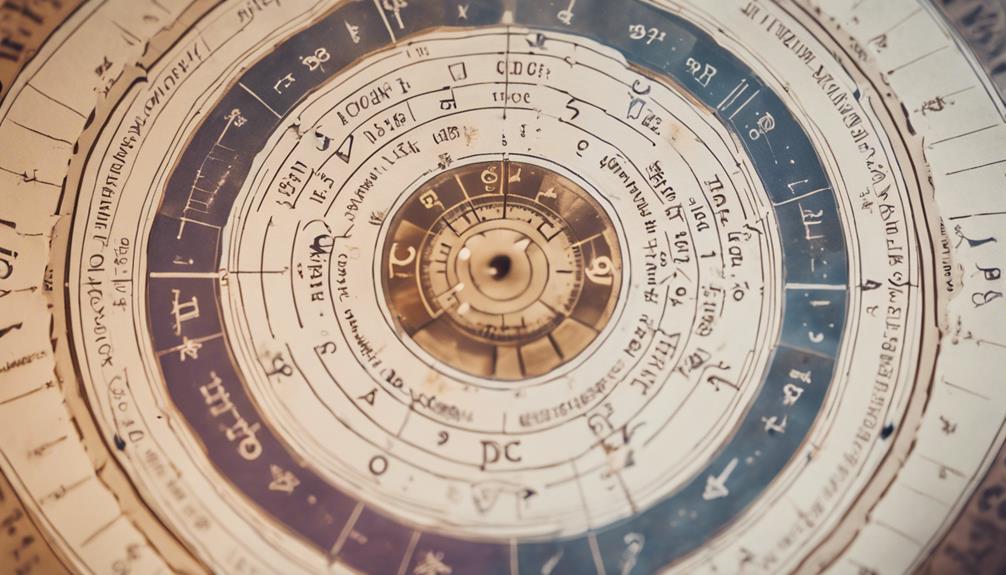How Does Astrology Work
When we explore how astrology works, we start by looking at the positions of celestial bodies at the time of birth, which astrologers believe influence our personality traits and life paths. This creates a birth chart, a map of the heavens, unique to each individual. Interpreting this chart involves understanding the symbolism and interactions of planets, stars, and cosmic elements. But how do these celestial alignments translate into insights about our strengths, weaknesses, and potential challenges? Understanding this process requires us to consider both the science and the art behind astrological interpretation.
Key Takeaways
- Astrology interprets planetary positions in the zodiac to understand personality traits and life events.
- Birth charts map the positions of planets at one's birth to reveal strengths, weaknesses, and life paths.
- Planetary aspects highlight individual strengths and challenges within a birth chart.
- House placements in a birth chart indicate which life areas are most influenced by planetary positions.
- Astrology serves as a tool for self-reflection, offering insights into personal growth and relationships.
Understanding Astrology Fundamentals

Let's dive into the basics of astrology, starting with how our zodiac signs are determined by the sun's position at the time of our birth. The sun travels through twelve zodiac signs over the course of a year, and the sign it occupies when we're born becomes our sun sign.
Each sign is associated with specific qualities and traits, giving us a glimpse into our core personality. Additionally, we've got moon signs that reflect our emotional nature and rising signs that showcase how we present ourselves to the world.
Astrological Elements and Interpretation
Now that we understand the basics of zodiac signs, we can explore how the positions of planets influence our ambitions, relationships, and deeper personality traits.
Each planet in our birth chart holds unique significance. For instance, Mercury governs communication, while Venus affects love and beauty. The aspects between planets—like conjunctions and oppositions—highlight our strengths and challenges.
House placements indicate which life areas these influences affect, such as career or home life. Retrogrades, where planets appear to move backward, can signal periods of introspection and reevaluation.
Different Astrological Systems

Astrological traditions vary across cultures, each offering unique perspectives on interpreting life's events and personal characteristics.
In Western astrology, we explore the 12 zodiac signs and focus on sun, moon, and rising signs to understand our traits and destinies.
Vedic astrology, rooted in Indian tradition, emphasizes karma, reincarnation, and provides insights into our past, present, and future.
Chinese astrology uses a different approach, combining Yin-Yang balance, the Five Elements, and 12 animal signs to reveal personality and fate.
Each system has its own methodologies and tools, enriching our understanding of ourselves and the world. By examining these diverse frameworks, we gain a broader, more nuanced view of the cosmic influences shaping our lives.
Astrology in Practice
Incorporating astrology into our daily lives can provide valuable insights for personal growth and self-reflection. By examining our birth charts, we can uncover strengths, weaknesses, and potential life paths.
Consulting professional astrologers offers personalized recommendations tailored to our unique astrological makeup.
We can use astrology to navigate challenges, enhance relationships, and make informed career decisions. For instance, understanding planetary aspects can help us identify favorable times for new ventures or personal changes.
Astrologers decode our charts to shed light on our emotional needs, communication styles, and hidden talents.
Astrology and Misconceptions

Many people misunderstand astrology, often confusing it with astronomy or dismissing it as mere superstition. We need to clarify that astrology isn't about predicting exact future events but rather understanding potential influences on our lives. Unlike astronomy, which is the scientific study of celestial bodies, astrology focuses on interpreting the symbolic meaning of planetary positions.
We often encounter skepticism because some think astrology claims to dictate fate. In reality, it's a tool for self-reflection and personal growth. While it's true that astrology isn't scientifically proven, many people report positive changes after consulting astrologers.
It's essential to recognize that astrology offers insights into our personalities, challenges, and opportunities, helping us navigate life more mindfully.
Conclusion
As we gaze up at the night sky, we can't help but feel a connection to the cosmic dance above. By weaving the intricate patterns of stars and planets, astrology invites us to explore the depths of our own souls.
It's not just about predicting events; it's about embarking on a journey of self-discovery. Let's embrace this celestial map, allowing its wisdom to illuminate our paths and guide us toward a richer understanding of ourselves.
🔴 Need Clarity on your Situation?



